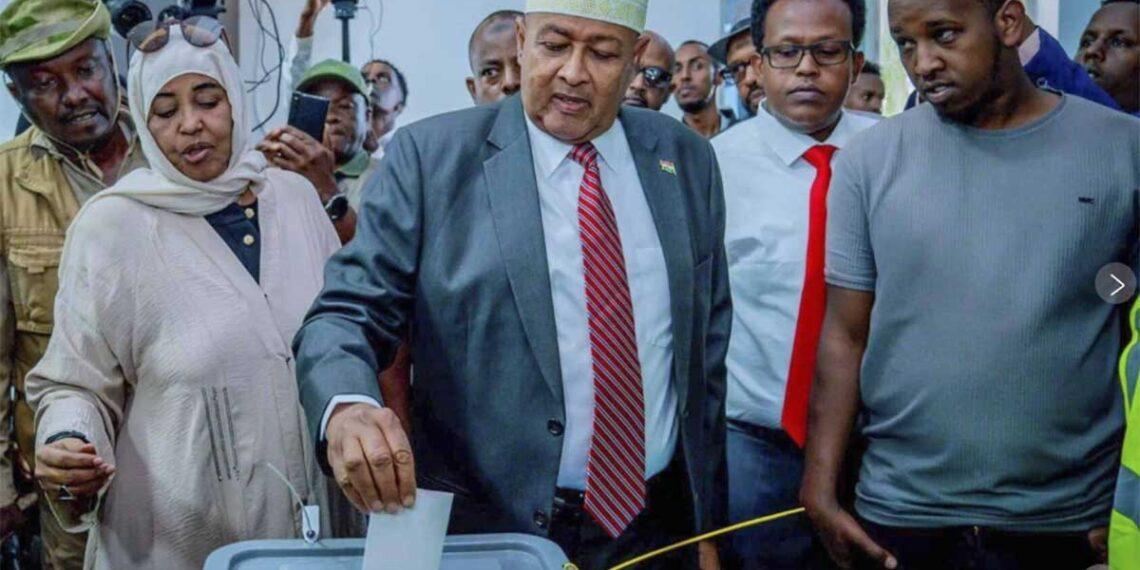Somaliland Opposition Leader Wins Presidential Election, Strengthening Push for Recognition
MOGADISHU, Somalia (AP) — In a significant political shift, the leader of Somaliland’s opposition party was declared the winner of last week’s presidential election on Tuesday, marking a boost to the region’s ongoing effort to gain international recognition.
Somaliland declared its independence from Somalia in 1991 amidst a period of conflict, and since then has maintained its own government, currency, and security forces. However, it has not been recognized as an independent state by any country.
Despite its lack of global recognition, Somaliland has developed a stable political system, in stark contrast to Somalia’s continued struggles with insecurity and instability.
Abdirahman Mohamed Abdullahi, leader of the Waddani Party, won more than 50% of the vote, defeating incumbent President Muse Bihi Abdi, who was seeking a second term after seven years in office. Abdullahi, 69, had previously served as the speaker of Somaliland’s parliament in 2005. His campaign focused on democratic reforms and improving the region’s economy, which has been hindered by the lack of international recognition.
The election was delayed twice since 2022 due to funding issues, but ultimately went ahead without major disruptions.
“This result, and especially the credible electoral process leading to a peaceful transfer of power, will further solidify Somaliland’s reputation as one of the more stable democracies in the Horn of Africa,” said Murithi Mutiga, Africa program director for the International Crisis Group.
Abdullahi’s victory marks the end of President Abdi’s tenure, who had championed Somaliland’s efforts to gain global recognition but secured just over 30% of the vote.
The U.S. Embassy in Somalia praised the election, calling Somaliland’s history of peaceful transitions a “model for the region and beyond” in a statement on X (formerly Twitter).
Somaliland’s recent agreement with neighboring Ethiopia—allowing Addis Ababa access to the Indian Ocean in exchange for recognition—has sparked political tensions with Somalia. Somalia accuses Ethiopia of undermining its territorial integrity. The opposition has raised concerns about the deal, criticizing how it was negotiated in secrecy and with limited benefits for Somaliland.
Mohamed Husein Gaas, director of the Raad Peace Research Institute in Mogadishu, told The Associated Press that there are doubts about the economic advantages of the Ethiopia deal for Somaliland, which the opposition sees as hastily arranged.
Leaders in Somalia have expressed hope for improved relations with the breakaway region, including former Somali Prime Minister Hassan Ali Khaire, who said the new president-elect should work to “strengthen the brotherhood and unity of the Somali people.”
Djibouti’s President, Ismail Omar Guelleh, also congratulated Abdullahi on his victory, signaling positive regional diplomatic relations.
This article was rewritten by JournosNews.com based on verified reporting from trusted sources. The content has been independently reviewed, fact-checked, and edited for accuracy, neutrality, tone, and global readability in accordance with Google News and AdSense standards.
All opinions, quotes, or statements from contributors, experts, or sourced organizations do not necessarily reflect the views of JournosNews.com. JournosNews.com maintains full editorial independence from any external funders, sponsors, or organizations.
Stay informed with JournosNews.com — your trusted source for verified global reporting and in-depth analysis. Follow us on Google News, BlueSky, and X for real-time updates.














